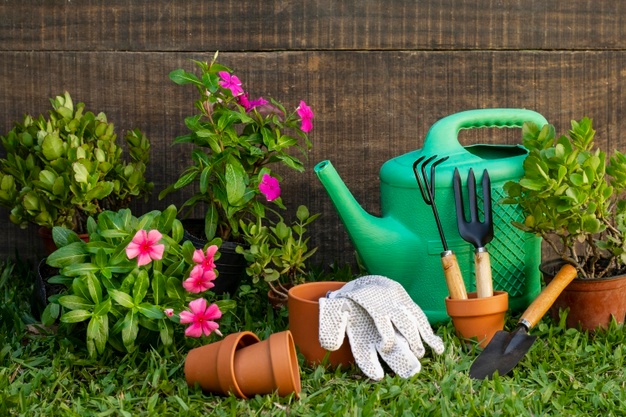

By Joachim Ng
One hobby that all Kinta Valley folks must cultivate is planting. Kinta Valley has soil and water greatly enriched with just the right minerals owing to the extensive limestone formations, and this natural blessing has given us Malaysia’s best taugeh produced in Buntong, the best pomelos grown in Tambun, and a wide array of other vegetables and fruits that are more succulent than the same edibles grown in Klang Valley.
Commercial farming isn’t everyone’s cup of tea, but planting as a hobby may become essential in Perak’s effort to stamp out the fire of climate change. If you own a landed house, do some planting instead of laying concrete over the entire stretch of soil outside. If you live in an apartment with a balcony, turn it into a sky garden. If you have no balcony, make do with indoor plants.
Species with fancy names that you can grow include Mother-in-Law’s Tongue, Song of India, Iron Tree, Spider Plant, Money Plant, Bird’s Nest Fern, Curtain Fig, Aloe Vera, Dendrobium Orchid, Yellow Bells, and Christmas Candle. However, reserve one big empty spot in your garden or a large pot with fertile soil in your balcony. Nature is the world’s most prolific planter and it will drop a handful of seeds on the spot or pot.
Plants deepen your consciousness as they form a passageway for you to discover your roots in nature. With accelerating climate change, nature may become a paradise lost. In order not to be chased out of the garden of Eden into damnation, cultivate the tree of life on the ground where you live. When you start planting and caring, you develop friendship with nature. You learn to cherish nature as a lifeline and not as a treasure to loot.
Without plants you will not be alive. In the beginning, the atmosphere contained more carbon dioxide (CO2) than oxygen. The advent of trees aeons later saw carbon absorbed and oxygen released, making the atmosphere favourable for animal and human life to develop. But each time the world human population goes up by another 100 million, you need to count how many extra trees are needed.
There are no extra trees, because every tree you plant is a replacement for a tree that has been lost. During the year 2019 before the COVID-19 pandemic slowed down the global economy, 38,000 sq km of pristine rainforests (slightly bigger than Pahang) were cut down or burnt down around the world. The carbon locked in the woody trunks was released back into the atmosphere, further warming the planet.
Trees cool down your housing area by the process of evapotranspiration or release of water into the air via tiny pores in the leaves. The temperature of a bare garden on a particularly sunny afternoon can reach 500C, but in a completely shaded area it will likely drop to 32-34. That’s a stunning difference of 16-18 degrees.
Put aside 10 minutes a week sitting next to a plant and meditate on your relationship with it. You and the plant are keeping each other alive through the practice of reciprocity. The plant gives you oxygen and you give the plant CO2. The relationship is both personal and collective. There must be enough plants to generate sufficient oxygen for all the animals and humans. As for CO2, there is too much of it in the atmosphere.
The maths of reciprocity goes like this: the more the human population increases, the more the tree population needs to increase. But humanity has become immoral towards nature. Every year we are reducing the number of trees to make way for more humans and their carbon-emitting way of life. This serious breach of reciprocal ethics has led to steadily accelerating climate change and the extinction of plant and animal species.
Plant meditation will give you the realisation that the equation has two sides. If you bump up one side you must also bump up the other side to enable the cyclical exchange of life-giving chemicals to be maintained. The world human population is projected to reach 10 billion—up by 2 billion—40 years from today.
One way to establish a balance in the human and tree populations is to introduce a law requiring all couples to plant the saplings of four large trees for the fourth child born, another four saplings for the fifth child, and so on. If one tree dies, the couple must plant two replacements as they owe every tree a duty of care.
With such a law in place, every family will get to be ecologically conscious and value the importance of reciprocity with nature. Couples will quickly learn to limit the number of children to no more than three, so as not to crowd out the forests and wildlife leading to their extinction. But we need to do more than just perform a balancing act.
If you’re socially active, you can form a neighbourhood committee and work with the local council to turn idle stretches of public grounds into street gardens with flowering plants for relaxation and large roadside spots into urban farms for papayas, ciku, bananas, chillies, tomatoes, cucumber, lettuce, kailan, herbs, and the like. You need the council’s expertise to sustain green projects of this scale.
Shopping malls are the best places to promote ecology, and all that the mall management has to do is convert an area of unutilised space into an urban farm for shoppers to stroll in and get an education on plant care through information boards. The farm could sell its produce to settle maintenance costs. Do not use weedkillers as these may poison your plants and impart the wrong lesson.
All commercial and high-rise buildings should develop vertical planting on walls and rooftop gardens to offset the solar reflection from glass windows that multiply heat. Unutilised interior spaces can be turned into plant-filled relaxation corners for building occupants. To make it happen, the authorities could insert mandatory clauses into the building regulations.
What about schools? They have large compounds but usually dwarf gardens. Every school should plant a big clump of trees and grow them to maturity over decades, as they teach students the connectivity of life through generations. So, plant that tree and be happy.
Disclaimer: The views and opinions expressed in this article are those of the author and do not reflect the official policy or position of Ipoh Echo.


